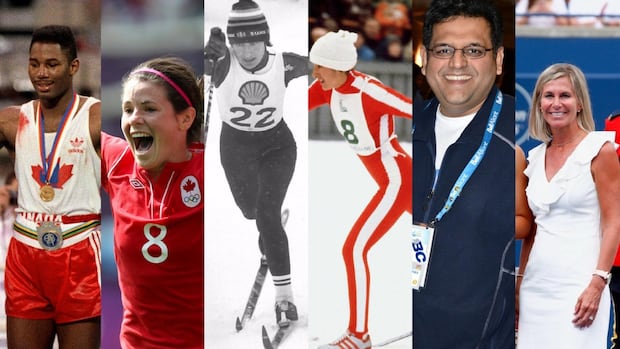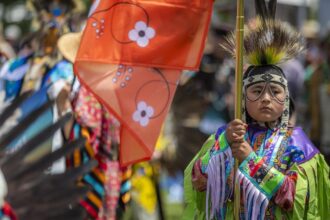In the shadow of Olympic glory lies a crucial stepping stone for Canadian athletes that often escapes the spotlight. The Canada Games, our nation’s largest multi-sport competition, has quietly served as the launching pad for countless Olympic careers, creating a pipeline of talent that continues to strengthen Canada’s presence on the international stage.
This week, the Canada Games Council unveiled its 2025 Hall of Honour class, celebrating eight individuals whose journeys exemplify the profound impact these games have on Canadian sport development. The inductees include Olympic champions Catriona Le May Doan and Alexandre Despatie, alongside other sporting luminaries whose careers blossomed after their Canada Games experiences.
“The Canada Games were absolutely instrumental in my development,” says Le May Doan, a two-time Olympic gold medalist in speed skating who competed at the 1983 and 1987 Canada Games. “They provided my first real exposure to a multi-sport environment and taught me how to perform under national pressure before I ever stepped onto the Olympic stage.”
The statistics underscore this connection. According to the Canada Games Council, approximately 40% of athletes who represented Canada at the Tokyo Olympics had previously competed at the Canada Games. This remarkable pipeline has produced over 300 Olympic athletes since the inaugural Canada Games in 1967, collectively earning more than 200 Olympic medals for our country.
Swimmer Ryan Cochrane, who won medals at both the 2008 and 2012 Olympics, credits his 2005 Canada Games experience as transformative. “Competing against the best from across the country revealed exactly where I stood and what I needed to improve,” Cochrane explained in a recent interview with CO24 Sports. “That reality check was invaluable.”
The upcoming 2025 Canada Summer Games in St. John’s, Newfoundland and Labrador, will feature approximately 3,600 athletes competing across 18 sports. Beyond the competition itself, these games inject approximately $80 million into local economies while creating lasting sporting infrastructure in host communities.
Sports policy experts point to the unique position the Canada Games occupies in our sporting ecosystem. “The games bridge the gap between provincial competition and international representation,” explains Dr. Margo Mountjoy, a member of the Canadian Olympic Committee. “They provide crucial high-performance experience while fostering national unity through sport.”
The impact extends beyond individual athletes. When Thunder Bay hosted the 1981 Canada Summer Games, the community gained facilities that continue to serve both recreational and competitive needs four decades later. Similarly, the Red Deer 2019 Canada Winter Games left behind $14 million in upgraded facilities that have enabled Alberta to host additional national competitions.
“What makes the Canada Games special is their dual purpose,” says Evan Johnston, Chair of the Canada Games Council. “They develop both our next generation of champions and our sporting infrastructure nationwide. Few sporting events deliver such comprehensive benefits.”
As preparations continue for the 2025 Games, the selection of St. John’s as host marks the first time Newfoundland and Labrador will welcome the summer edition, having previously hosted the winter games in Corner Brook in 1999. This eastward movement reflects the genuinely national character of the event.
For young athletes watching Olympic competitions this summer, the path to those same podiums may well run through the Canada Games. As our national sporting landscape evolves, how can we further strengthen this critical development pipeline to ensure Canadian athletes continue reaching their fullest potential on the world stage?










